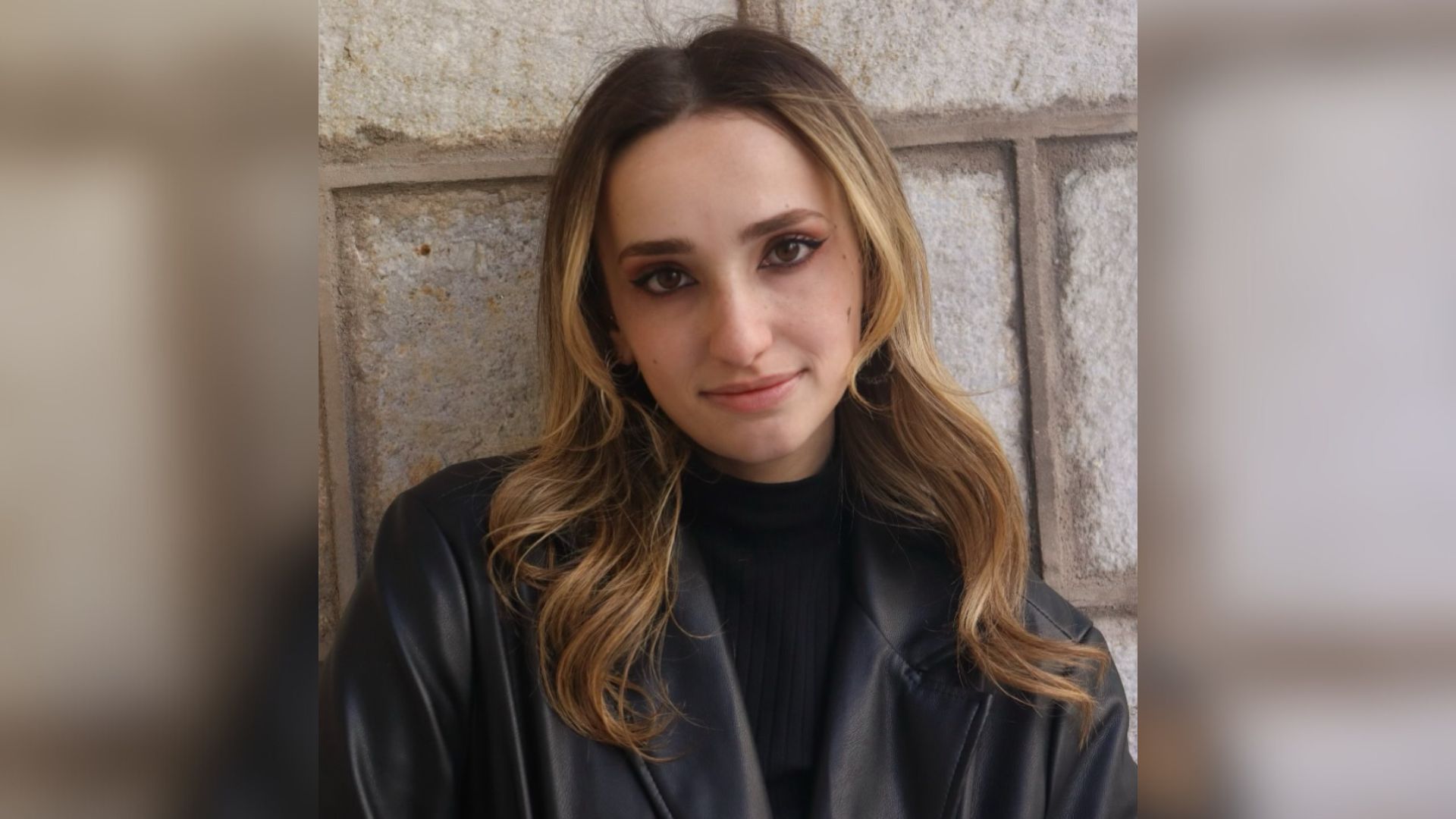As a warning, this story contains mention of some troubling content that may disturb some readers.
In the fall of 2021, Student Activists Against Sexual Assault (SAASA) President Ray Epstein arrived at Klein College of Media and Communication as a journalism major, ready to start anew and leave her high school self behind.
Shortly after, Epstein realized that journalism wasn’t for her and declared a major in English with a concentration in creative writing and a minor in sociology. After two years of English classes and hearing about Klein College’s communication and social influence (CSI) program from her friend Ben Wilcox, KLN ’23, Epstein added the major to her course of study and returned to the Klein College community in the fall of 2023.
“I wanted to be learning about the things that I am doing in my real life,” Epstein said. “CSI is all about the things I’m doing.”
Epstein has dedicated almost half of her life to advocacy, research and education in the space of sexual violence and healing. After graduating next spring, she hopes to attend law school and use her skills to pursue a career in civil rights law.
“The world is so fortunate that this is the path that she chose,” said Assistant Professor in the Nursing Department and SAASA advisor Laura Sinko. Sinko does research about healing from sexual violence and is a sexual assault nurse examiner.
Epstein and Sinko first connected when several people recommended that the two connect so Sinko, new to Temple, could learn more about the support survivors had at Temple University.
This semester, Epstein took CSI 2296: Resistance, Protests, and Social Movements and chose to follow the #MeToo movement for the duration of the class. She was able to explore the movement from a different perspective – the communications side – and wrote a comprehensive research paper with her findings.
Epstein also noted CSI 1111: Introduction to Public Speaking as a particularly beneficial class for her. Before taking it, she thought she was a good speaker because she could occasionally glance up from her notes or slides. Afterward, she said she is a totally different speaker than she was before taking the class.
It's hard to believe that there was a time when Epstein wanted to leave behind her reputation associated with sexual violence. In middle school and high school, she was known as “rape girl” after she reported experiences she had with a partner. As a result, she completed middle school from home.
To fill her time, Epstein’s mom, a domestic violence attorney, encouraged her to find a way to channel her feelings into something positive. This led to her interning at Break the Cycle, an organization that offers resources for individuals to identify, prevent and intervene in domestic violence situations.
Break the Cycle saw potential in an eighth grader, Epstein said. Rather than getting coffee or making copies, she gained experience by shadowing attorneys, taking notes and even creating a resource chart that is given to survivors. The internship changed the trajectory of her life, she said.
After finishing high school and preparing for college, though, Epstein wanted to leave “rape girl” behind. The name defined her in a negative way, especially because it hid recognition for any of the positive work she was doing at Break the Cycle. Her plan for college was to join whatever sexual assault club Temple had but sit in the back during meetings.
There was one problem, though: in the fall of 2021, Temple had no such club, and hadn’t for several years.
Quickly, Epstein’s desire to leave that reputation behind dwindled and she began reaching out to people to find out how she could get involved in bringing the club back. After recruiting some of her close friends to form an executive board, SAASA was reestablished at Temple and started recruiting members at TempleFest the following fall.
“I kind of learned to redefine what rape girl means to me, because I think I am rape girl,” Epstein said. She is happy with her choice to restart the club and proud of the opportunities that have come with it.
SAASA’s parent organization is It’s On Us, a national organization building the movement against sexual assault on campuses. Epstein is the organization’s LGBTQ+ caucus chair and has spent the last two years building her caucus and researching the impact of sexual violence in the LGBTQ+ community. As a chair, Epstein has led workshops at two regional summits along with SAASA’s Fraternity Representative Louis Di Pede.
Epstein and the club are gaining regional and national recognition through their work at summits and partnership with It’s on Us. Last semester, the club received $350,000 in Uber vouchers for students to claim to get themselves out of harmful situations. They were also honored by Philadelphia City Council Member Isaiah Thomas for their work.
“I’ve seen Ray grow more comfortable leading as we’ve gotten more and more general body members,” said SAASA Secretary and Village Representative Rebecca Farley. She noted that Epstein is very mission-oriented and makes sure that every meeting and initiative is meaningful.
This semester, Epstein and the club are working on getting safe bar certifications for Maxi’s and Pub Webb, where Temple students often gather. They are also continuing to push for the use of Callisto, an encrypted and anonymous way to connect with other survivors of the same perpetrator.
The first SAASA general body meeting of the semester will be on February 7 at 5:30 p.m. in the Howard Gittis Student Center, room 200D.

